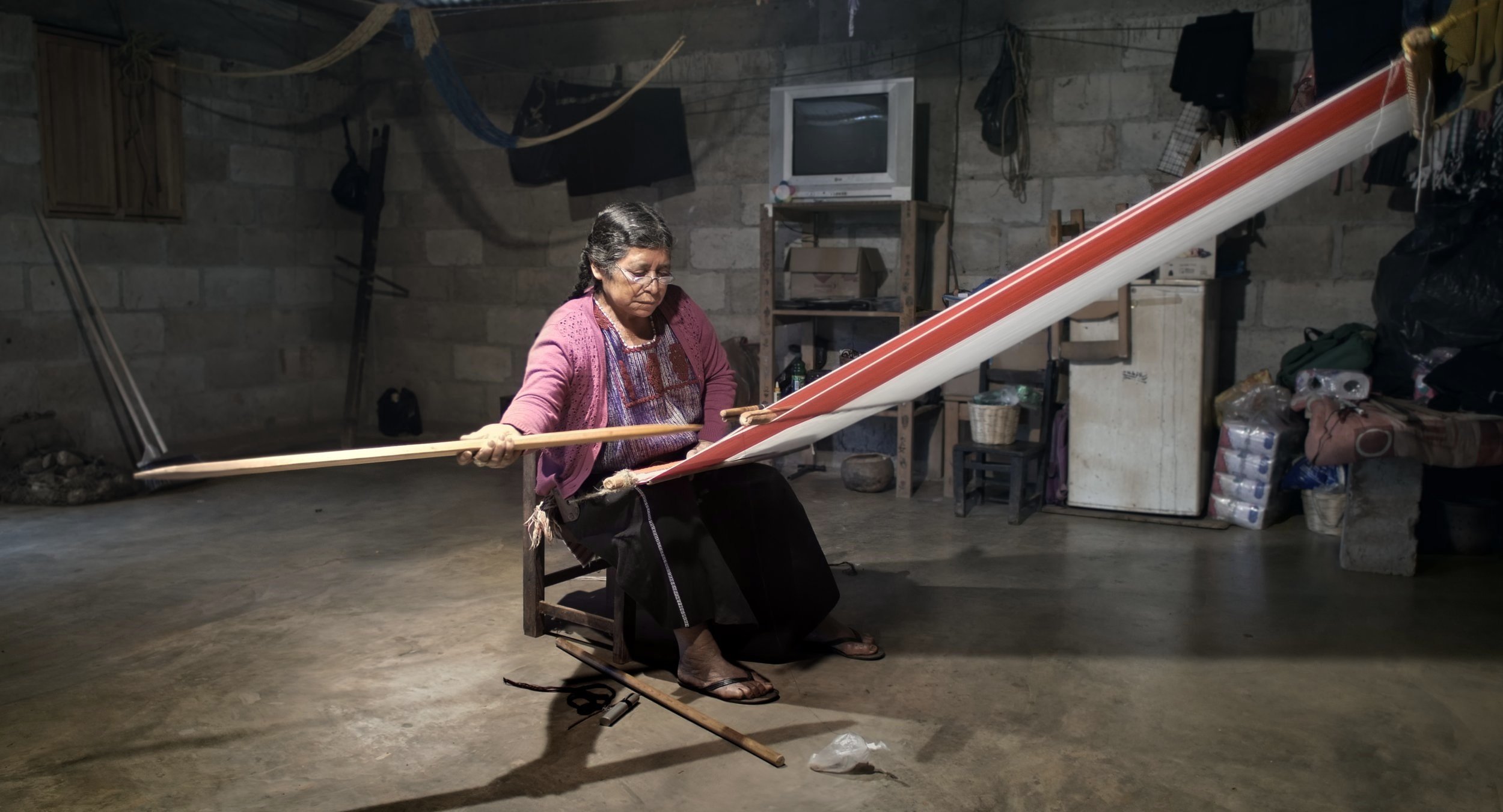
Spotlight.
Creator in the Spotlight.
Ana Ts’uyeb
A Voice Shaping Mexican Cinema
Ana Ts’uyeb
Ana Ts’uyeb
Filmmaker
“This film speaks of a past, of a present, but it also gives hope for the future.”
Ana Ts'uyeb is a Tzotzil filmmaker whose voice is shaping the future of Indigenous Mexican cinema. Hailing from Naranjatic Alto in the highlands of Chiapas, Mexico, Ana brings to the screen stories often left untold, stories of Indigenous women navigating complex cultural, social, and political landscapes with strength and grace.
Her debut feature, Li Cham (I Died), is a moving portrait of three generations of Tzotzil women, one of whom is her mother. The film weaves together their personal journeys to highlight broader themes of motherhood, autonomy, cultural survival, and the lingering impact of systemic violence. Rather than framing these women as victims, Ana presents them as active agents of change, holding space for grief while fiercely envisioning a different future for themselves and their children.
What sets Ana's work apart is not only her close proximity to the stories she tells, but also her commitment to reimagining the documentary form from within her own community's worldview. Her use of voiceover, poetic imagery, and intimate everyday scenes - such as women braiding each other's hair - invites the viewer into a space where cultural expression is both deeply symbolic and radically political.
“This film speaks of a past, of a present, but it also gives hope for the future,” Ana explains.
“The three stories are not only three stories, but they also speak of many women in the communities, of many mothers as well.”
“I've tried to rewrite those rules to give a narrative that is from Indigenous peoples, so that people perceive how we see the world, how we tell our stories and needs” Ana shares. "I feel that this film, this narrative proposal, is being generated from a Tzotzil woman's perspective. So, it is telling a story from a corner of Chiapas, and it is telling a universal story."
Before making her feature debut, Ana worked in radio, community communications, and short documentary filmmaking. She has collaborated with organizations such as Cultural Survival and Trickle Up, focusing on Indigenous women's empowerment. She is also a co-founder of Cine Bolomchon, a community screening space in Chenalhó that supports Indigenous film practice and exhibition from the grassroots up.
Ana's journey into filmmaking was deeply influenced by the transformative power of the Zapatista movement. "Thanks to the historical and social context that happened in Chiapas... thanks to the social movements. Thanks to this impulse, I decided to dedicate myself to audiovisual media and cinema," she reflects.
“I am close to the Zapatista movement, thanks to this movement I learned about women's rights and saw my mother break the cultural stereotypes of the same community, of the same family, to defend her rights and those of Mother Earth.”
Her path has not been without challenges. As a young Indigenous woman in the film industry, Ana has faced multiple layers of obstacles. When seeking funding for Li Cham, she encountered producers who focused more on her age, Indigenous identity, and gender than on the merit of her work - a reminder of the systemic barriers that continue to exist for filmmakers from marginalized communities.
Despite these obstacles, Ana persevered, driven by necessity and vision. "I looked for a narrative that provokes questions, inspires other women, and makes us reflect on our roots," she explains about her approach to Li Cham.
In Li Cham, Ana offers a rare cinematic perspective: one that doesn't look at Indigenous life from the outside, but grows from within it - reflective, grounded, and transformative. Her film has already earned critical recognition in Mexico, winning Best Feature Documentary at the Morelia Film Festival, and is now poised to reach international audiences with its upcoming screening at the Sheffield Documentary Festival.
As a filmmaker, Ana Ts'uyeb is not just documenting her community's realities - she's expanding the very language of cinema to include them on their own terms. "Despite the adversities, challenges and complexity of their context, they are moving forward and envisioning a life of greater hope for their children," she says of the women in her film, words that could equally describe her own journey.
Her work marks the emergence of a powerful new voice in global documentary, and a vital moment for Indigenous women's storytelling. Through her lens, we see not just the struggles of Tzotzil women, but their strength, their resistance, and their unshakeable hope for the future.
“Despite the adversities, challenges and complexity of their context, they are moving forward and envisioning a life of greater hope for their children.”
More In Spotlight.







